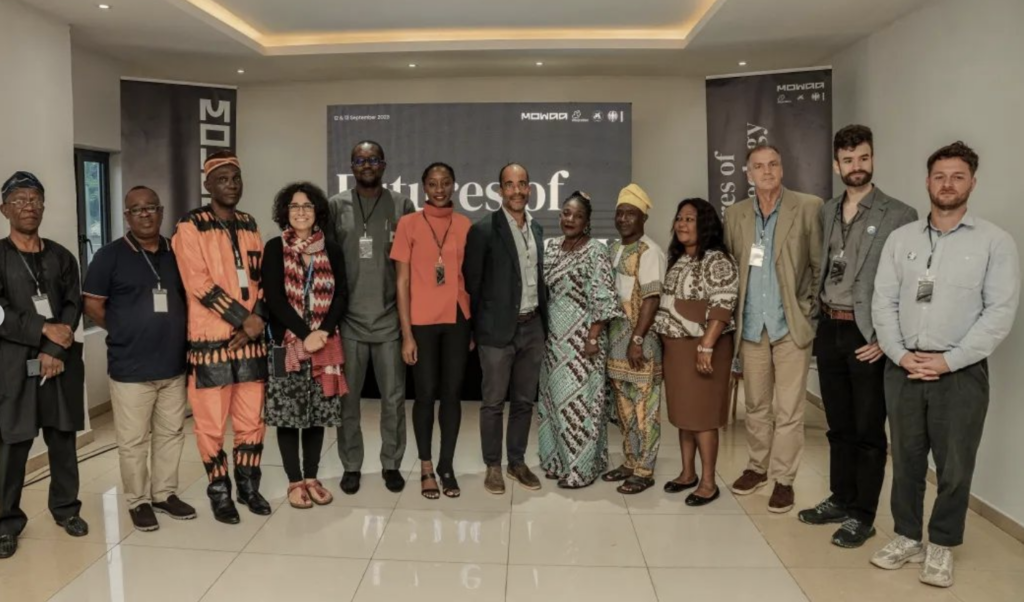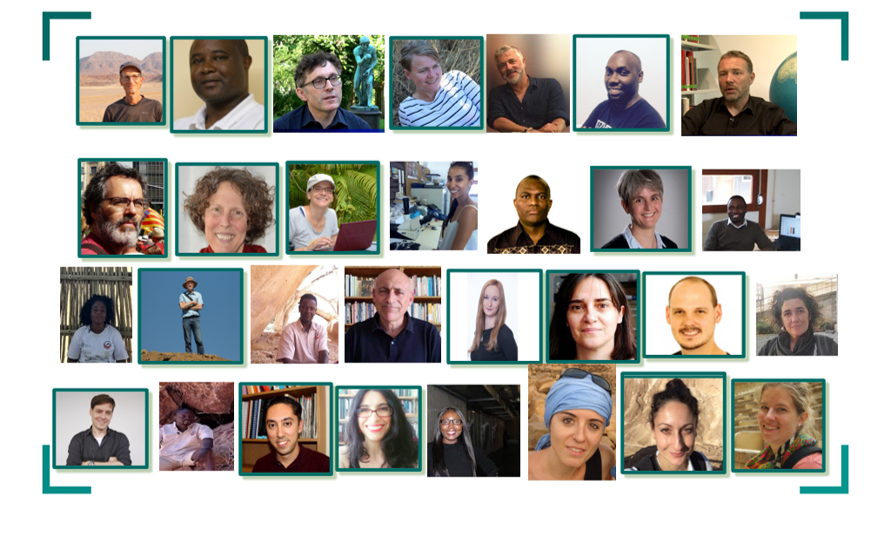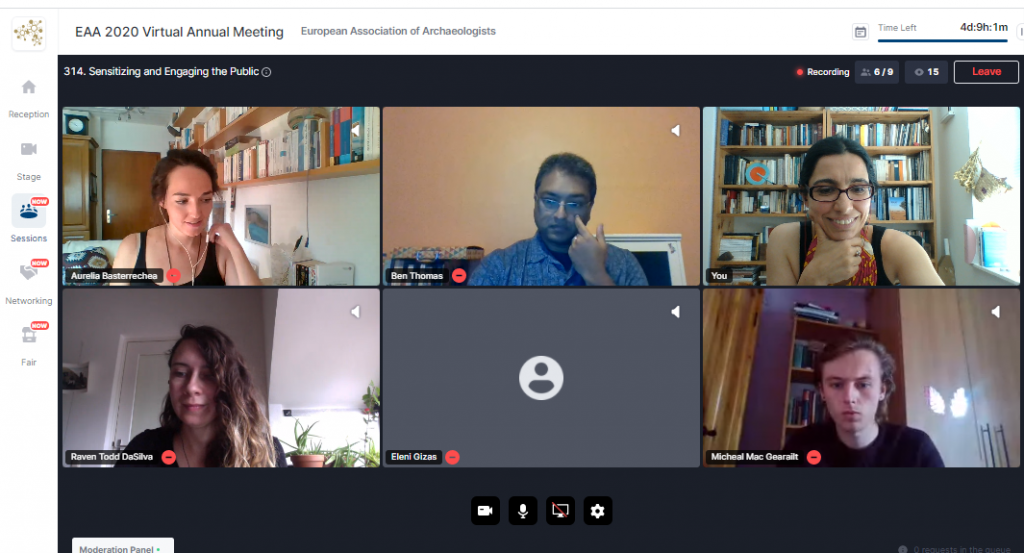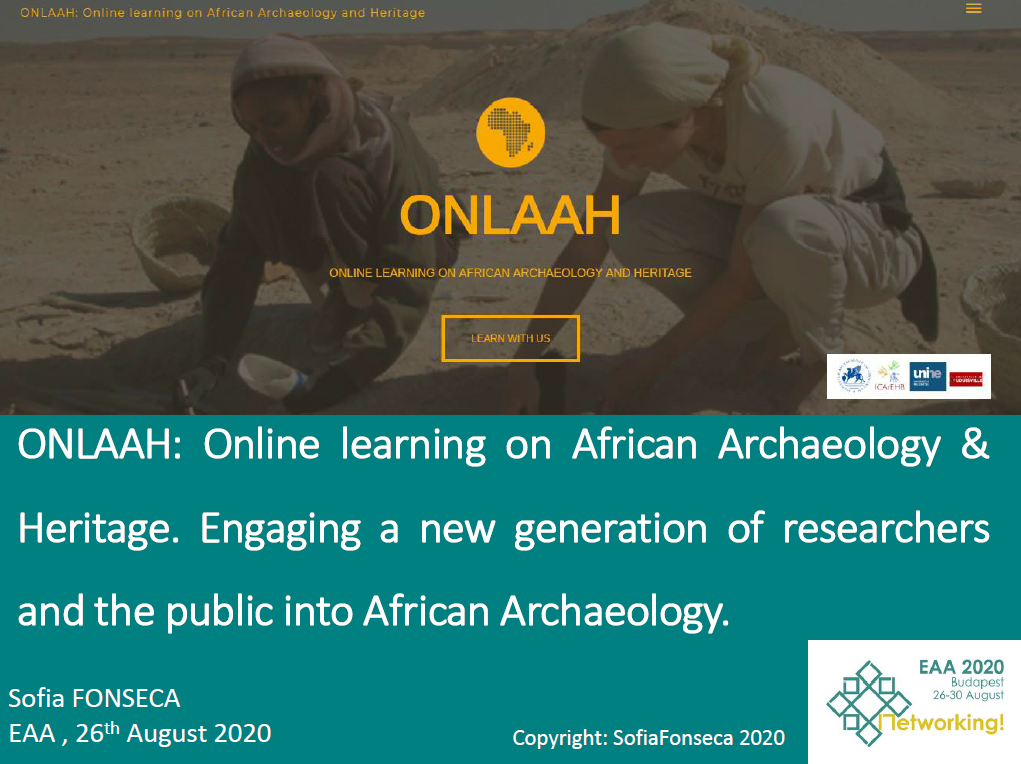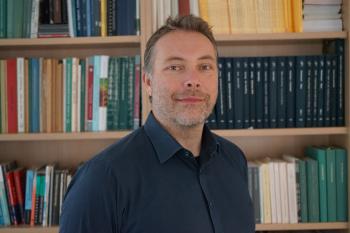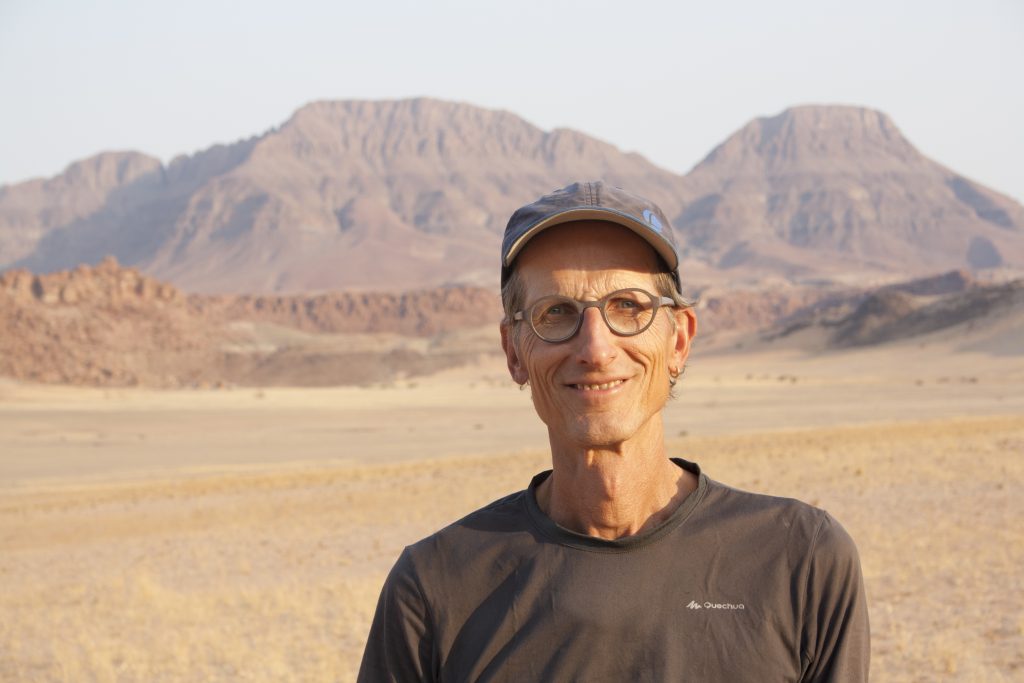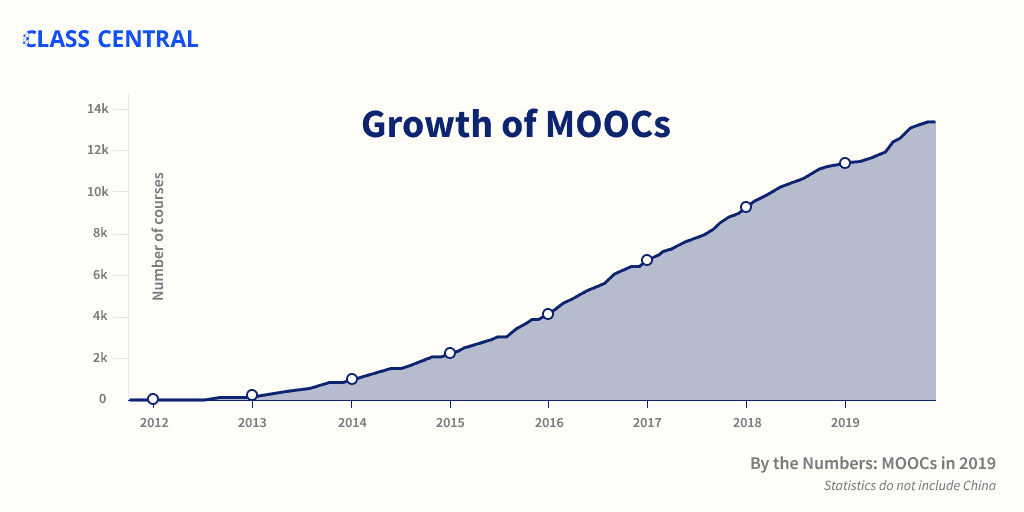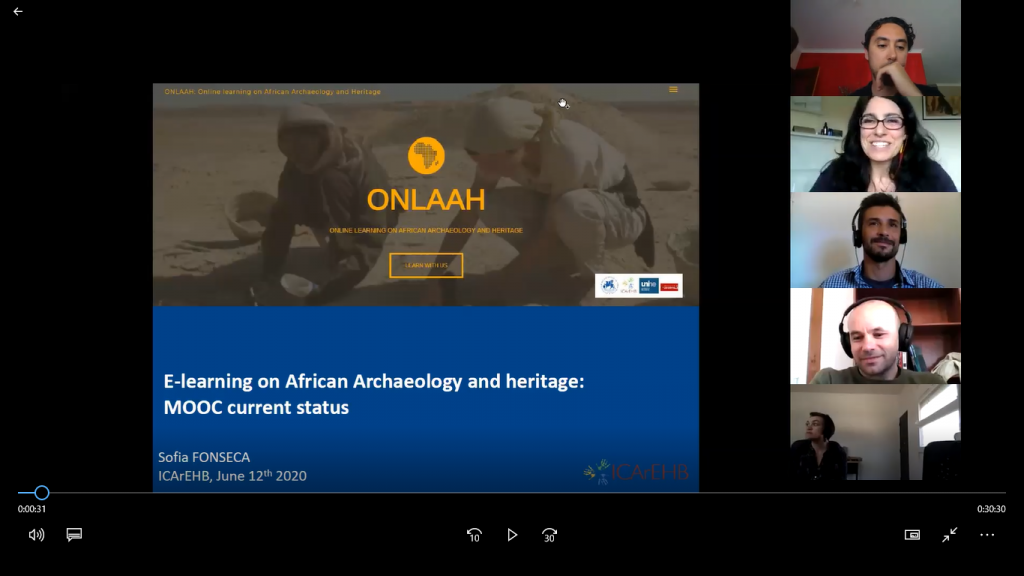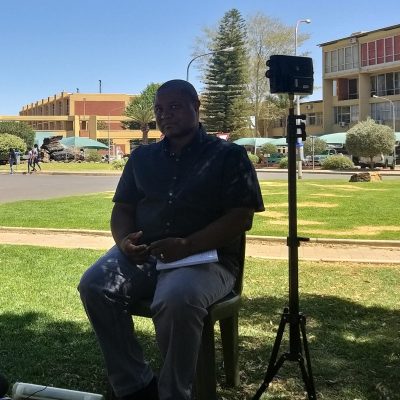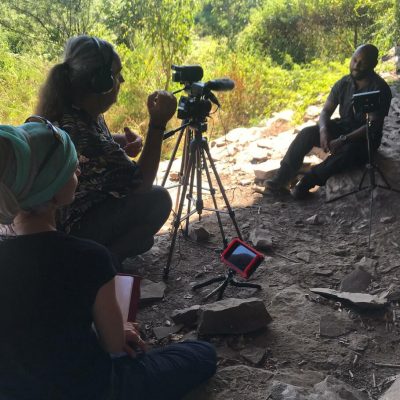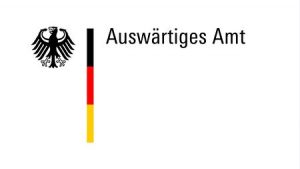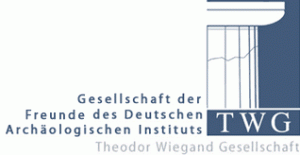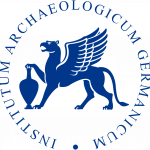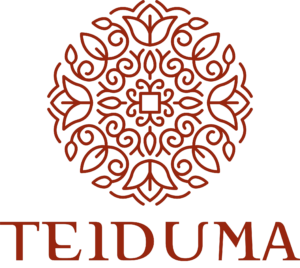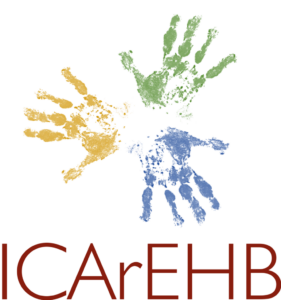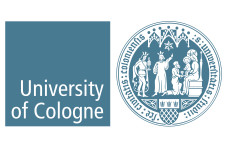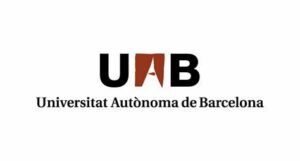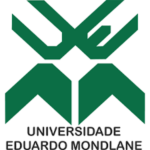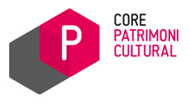In September 2024, the Museum of West African Art (MOWAA) and the German Archaeological Institute (DAI) came together to deliver a four-part webinar series, focusing on Heritage Digitization and Archaeo-Informatics. As the digital world continues to transform industries globally, this series aimed to equip young professionals from Nigeria and West Africa working in archaeology and heritage management with the tools they need to become familiar with these technologies.
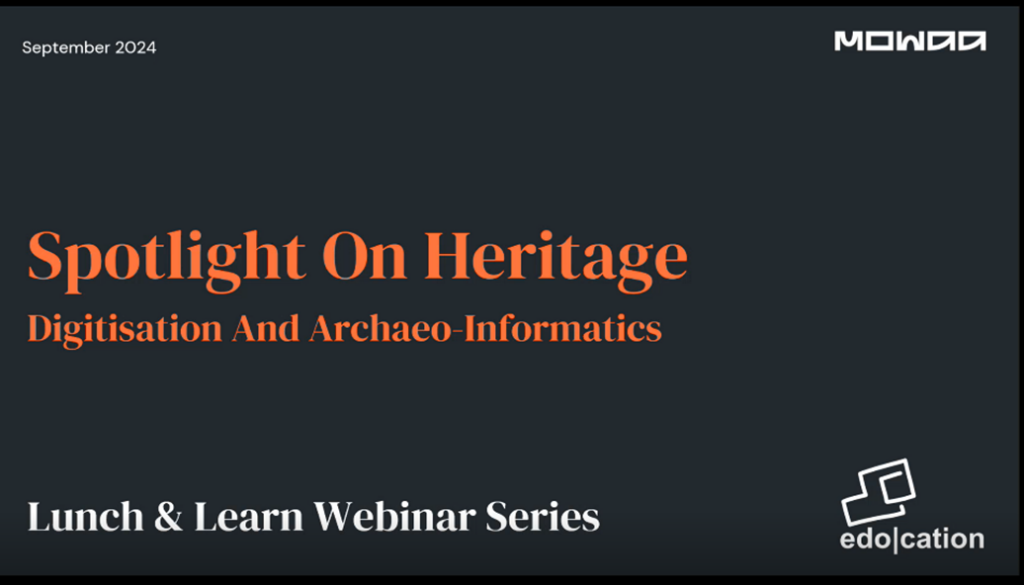
Key Objectives
The webinar series had several core objectives:
- Introduction to Key Concepts: Participants were introduced to foundational aspects of heritage digitization and archaeo-informatics, emphasizing how digital tools can revolutionize archaeology and heritage preservation.
- Practical Tools: The series offered hands-on learning with tools such as Geographic Information Systems (GIS), 3D modeling, and digital object databases.
- Career Development: By showcasing real-world applications and career opportunities in digital heritage management, the series inspired participants to explore new professional paths.
- Inspiration and Empowerment: Personal stories from industry experts motivated participants to take an active role in shaping the future of heritage preservation.
A Diverse and Engaged Audience
The webinars were targeted at 100 participants selected from tertiary institutions across Nigeria and West Africa, with a focus on students and young professionals interested in archaeology and heritage management. The sessions were designed to balance theoretical insights with practical skills, ensuring that participants could engage with real-world digital tools.
Despite being an online event, the webinars saw significant participation, with 70% attendance in the first session, followed by strong engagement throughout the remaining three sessions.
Deep Dive Into the Sessions
The four webinars, held over two weeks, covered various aspects of digital heritage:
- Introduction to Heritage Digitization and Archaeo-Informatics: This session laid the foundation, presenting key tools and showcasing the collaborative efforts between MOWAA and DAI. Participants were introduced to MOWAA’s digitization project of the Benin Bronzes, alongside DAI’s work in the edo|cation¹ project.
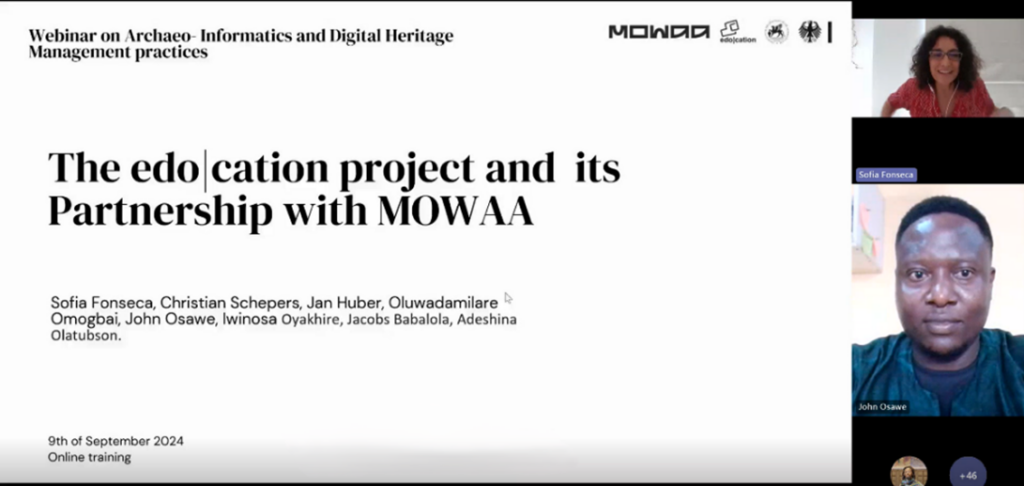
2. Heritage Digitization: Participants gained insights into preserving cultural heritage through digital records. Practical exercises, such as artifact digitization, were a key focus of this session.
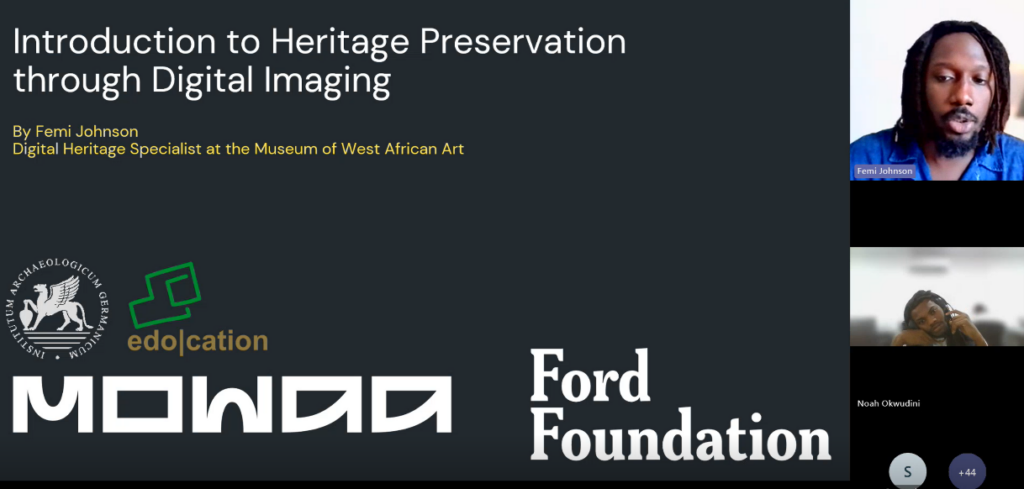
3. Archaeo-Informatics: This session went deeper into the application of Geographic Information Systems (GIS), demonstrating how tools like QGIS can be used to map and analyze archaeological sites.
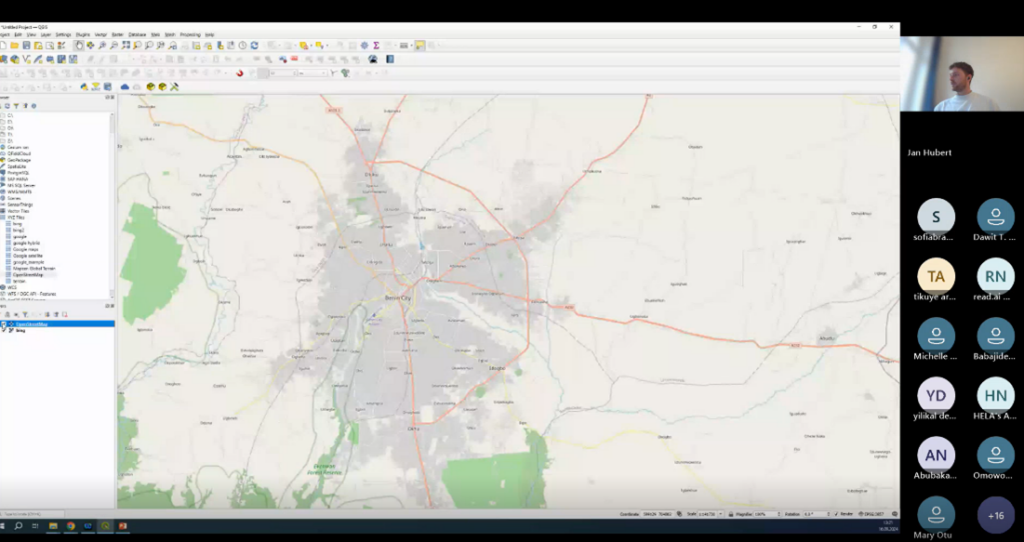
4. Industry Applications of Digital Tools: The final session featured case studies on how augmented reality (AR) and virtual reality (VR) are used to engage audiences and enhance the visitor experience. Presentations from industry leaders, such as Pedro Pereira from byAR and Pankaj Manchanda from Augtraveler, provided valuable insights into how these technologies are transforming heritage tourism and education.
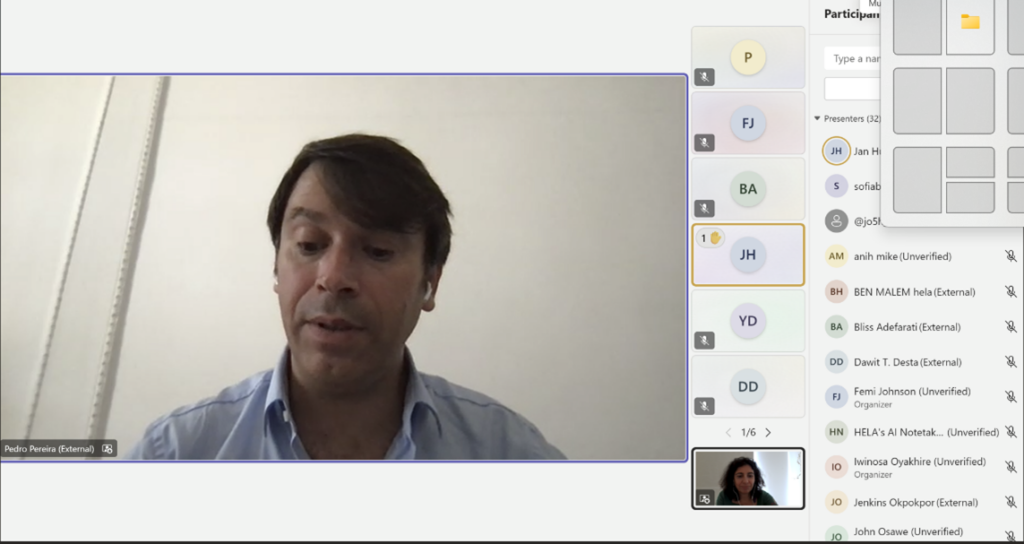
The Path Forward: An Evergreen Course
Building on the success of the series, a proposal is underway to create an evergreen course on heritage digitization and archaeo-informatics. This online, self-paced course will be hosted on the iDAI platform, making the content accessible to a wider audience and extending the impact of the webinars.
Why This Matters
As we stand at the crossroads of tradition and innovation, initiatives like the MOWAA & DAI Webinar Series are important because they provide young professionals with the digital skills needed to manage and preserve cultural heritage. It’s not just about learning new tools; it’s about preparing for the future of heritage management.
By teaching participants practical skills like GIS and 3D modeling, the series has helped build a foundation for digital heritage management in Nigeria and West Africa. With more educational initiatives planned, including a module dedicates to Nigeria in our ONLAAH MOOC, this initiative will continue to support the development of digital literacy in the heritage field
Acknowledgement
We would like to acknowledge MOWAA Outreach & Learning team, led by John Osawe (Outreach & Learning Coordinator) and Iwinosa Oyakhire (Programme Associate), that played a fundamental role in ensuring the series’ success. Femi Johnson from MOWAA Digitisation Heritage Lab and Jan Huber, the specialist in archeo-informatics of the edo|cation team. Their joint efforts, knowledge and sharing skills were crucial in making the webinars possible and an utter success. Finally, to Pedro Pereira and Pankaj Machanda, our guests’ experts, for sharing with us their projects and experience.
By Sofia Fonseca
¹The DAI edo|cation project is a three-year (2022–2024) initiative focused on the study of the Benin Moats using tools like GIS, photogrammetry, and 3D modeling, while also training professionals in these advanced technologies for archaeology and heritage management.
